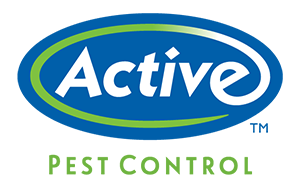1. What does a termite look like? »
Even though termites are rarely seen, it is important to know their identifying features because they are often confused with ants. Although termites differ in appearance between types and castes, they generally have soft, straight bodies and range in color from off-white to dark brown or red in color.
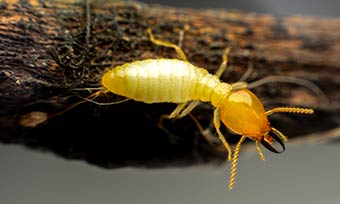
2. What are the types of termites? »
With three main types of termites and several castes within each one, figuring out what kind of termites you may have can quickly get confusing. There are many species of termites, but they are all generally considered to fall within one of these three categories: drywood termites, dampwood termites, or subterranean termites.
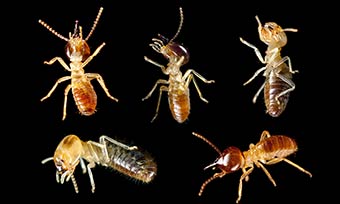
3. What termites are in Georgia? »
Different species of dampwood, drywood, and subterranean termites are frequently found in Georgia due to the favorable warm climate. Some of the most common Georgia termites include the subterranean termite, the formosan termite, and the drywood termite.
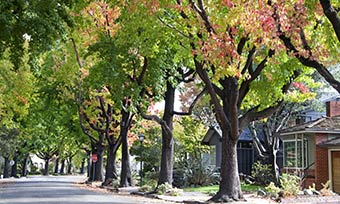
4. What are the signs of a termite infestation? »
Termite infestations are notoriously difficult to discover, which is why it’s crucial to always be on the lookout for warning signs. Some of the signs of a termite infestation include damaged or hollow wood, mud tubes, frass, discarded wings, small holes in drywall, damaged flooring, bubbling paint and, of course, seeing a swarmer termite.
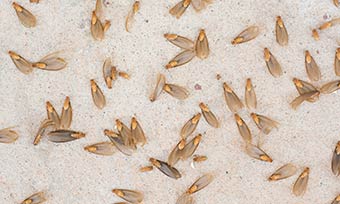
5. When is termite season in Georgia? »
Although many people think termites are only active during the spring and summer, they are actually active throughout the entire year. While termites indeed swarm and reproduce in the spring, they are capable of infesting your home during any season of the year. Termites are thus a threat to homeowners year-round.

6. What is the life cycle of a termite? »
Termites have a very unique life cycle that differs from other types of pests. The queen termite lays eggs, young larvae will hatch, and the larva will molt several times until it is assigned its designated caste. Once a termite has been assigned a caste, the termite will live out its life fulfilling its given functions.
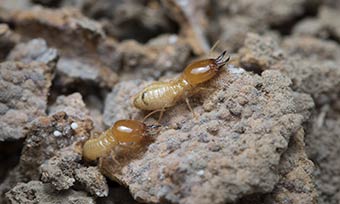
7. Can termites hurt me? »
While termites cause homeowners thousands of dollars in damage from infestations, they do not pose any serious health risks to people or pets. Termites very rarely bite humans and do not carry or transmit any diseases. The true danger of termites lies in the fact that termites can cause substantial damage to the structures they infest.
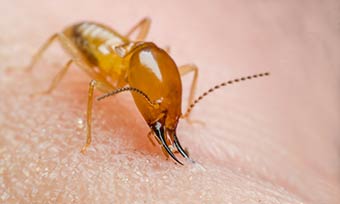
8. Where do termites live? »
Termites have been found in every state in the nation besides Alaska. They are most commonly found in warmer climates, which is why Georgia are home to a variety of types of termites. The southernmost border of the country deals with subterranean, formosan, and drywood termites due to its weather and humid climate.
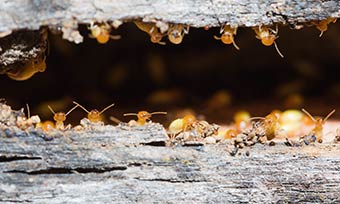
9. What attracts termites to my house in Georgia? »
There are a few main things that often contribute to termites infesting a home. Because many types of termites need moisture to thrive, improper drainage or leaky pipes causing excess moisture will often attract termites. Piles of wood stored near the home, wood in contact with soil, and ventilation issues are other contributing factors.
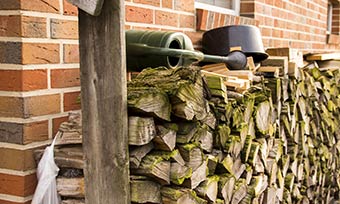
10. How do termites spread in Georgia? »
Termites can spread quickly mostly due to their ability to go unnoticed inside of a home for such a long time. Some of the factors that can encourage their ability to thrive include availability of cellulose, presence of wood in contact with soil, amount of moisture present, climate, as well as the age and size of the colony.
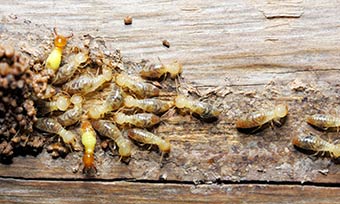
Termite Identification in Georgia
Serving Your Pest Needs for Over 35 Years Across Georgia

